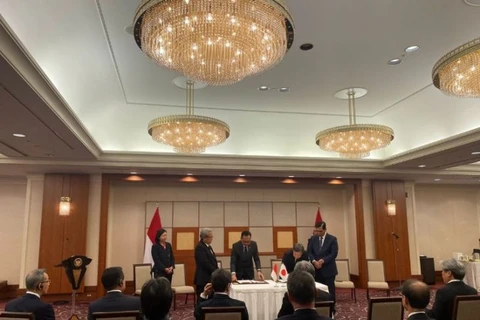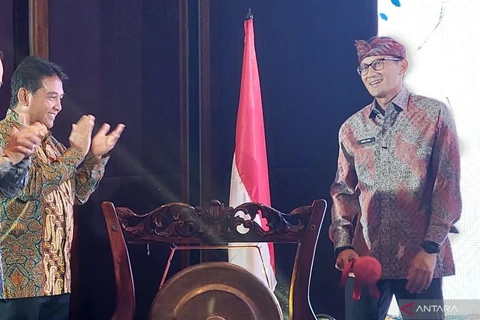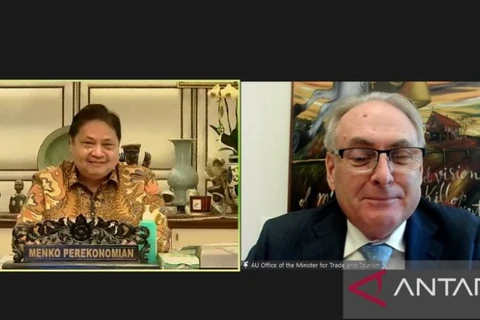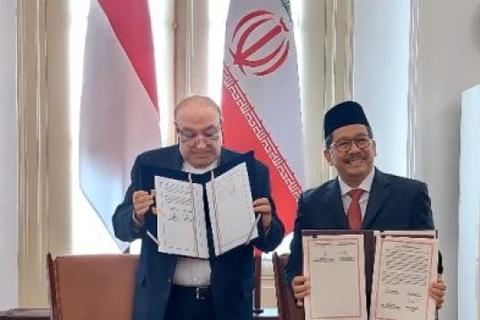Jakarta (VNA) - Indonesia will continue exporting some raw minerals in 2024 in the context that domestic companies are rushing to finish smelters to process the metal ore, said Minister of Energy and Mineral Resources Arifin Tasrif.
The resource-rich country had planned to ban exports of all metal ore starting in June 2023 to encourage investment in the domestic processing industry.
But copper, iron ore, lead, zinc and anode mud from copper concentrates will be allowed to leave the country until May next year so smelters, many of which were delayed by the COVID-19 pandemic, would be ready to handle the materials.
The minister said banning exports prematurely would cost the country revenue and jobs.
Companies can keep exporting if they pay export duties and if their smelters were at least half-completed as of January. But they will be fined for every month of delay, Arifin noted.
The Indonesian government has said it would exempt copper miners Freeport Indonesia and Amman Mineral Nusa Tenggara from the ban as their smelter development was also disrupted by the pandemic.
However, bauxite shipments will be stopped in June, Arifin said, since four existing smelters can absorb ores intended for export.
However, Ronald Sulistianto, Chairman of Indonesian Bauxite and Iron Ore Companies Association, said there are only two operating bauxite plants in the country, producing 30 million tonnes.
In 2020, Indonesia banned exports of nickel ore, rattling global markets. But the policy resulted in massive inflows of smelter investment and helped boost the value of exports from the country./.
The resource-rich country had planned to ban exports of all metal ore starting in June 2023 to encourage investment in the domestic processing industry.
But copper, iron ore, lead, zinc and anode mud from copper concentrates will be allowed to leave the country until May next year so smelters, many of which were delayed by the COVID-19 pandemic, would be ready to handle the materials.
The minister said banning exports prematurely would cost the country revenue and jobs.
Companies can keep exporting if they pay export duties and if their smelters were at least half-completed as of January. But they will be fined for every month of delay, Arifin noted.
The Indonesian government has said it would exempt copper miners Freeport Indonesia and Amman Mineral Nusa Tenggara from the ban as their smelter development was also disrupted by the pandemic.
However, bauxite shipments will be stopped in June, Arifin said, since four existing smelters can absorb ores intended for export.
However, Ronald Sulistianto, Chairman of Indonesian Bauxite and Iron Ore Companies Association, said there are only two operating bauxite plants in the country, producing 30 million tonnes.
In 2020, Indonesia banned exports of nickel ore, rattling global markets. But the policy resulted in massive inflows of smelter investment and helped boost the value of exports from the country./.
VNA























